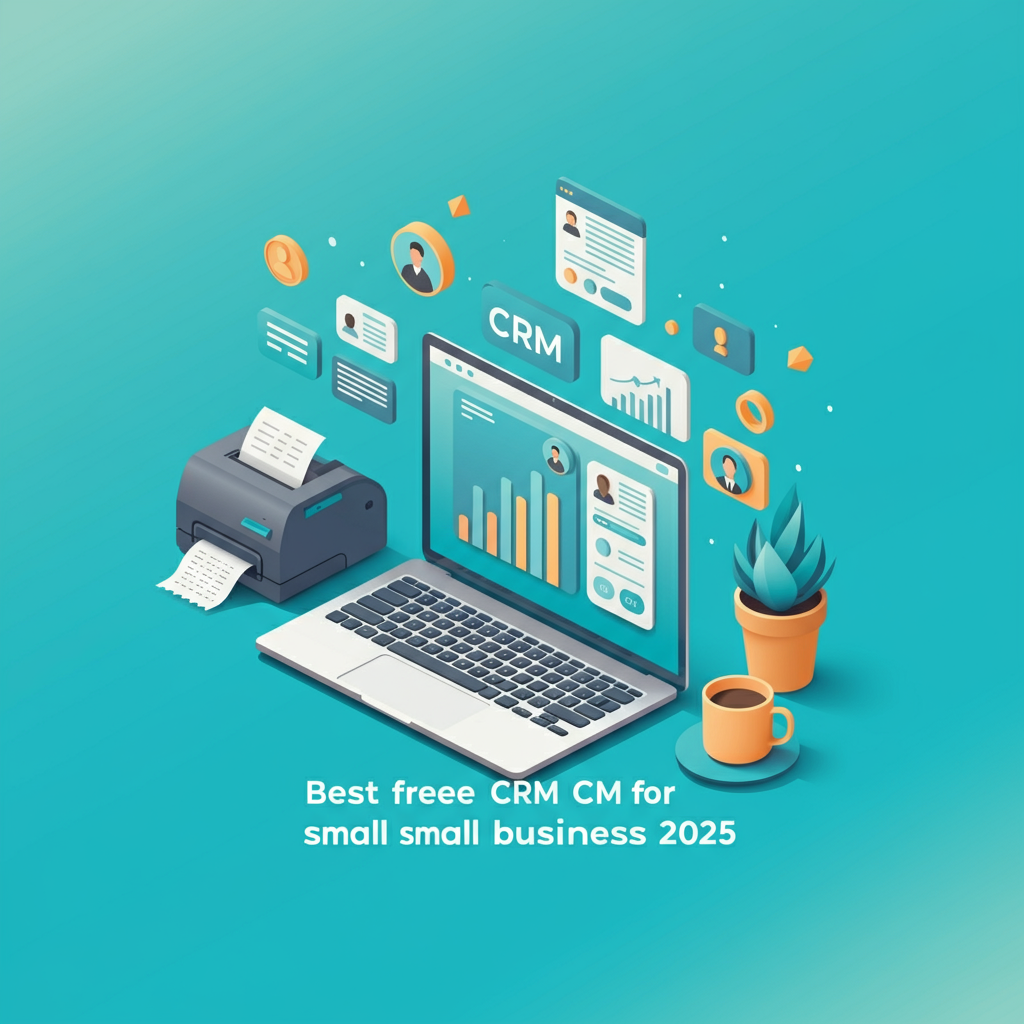Running a small business means juggling a lot with limited resources, but building strong customer relationships shouldn’t be out of reach. If you’re searching for ways to organize your contacts and keep every lead on your radar—without blowing your budget—a free CRM for small businesses can make all the difference. Picking the right fit helps you stay organized, save time, and grow smarter.
How to Evaluate a Free CRM
It’s tempting to grab the first no-cost tool you see, but the best free CRM for small businesses in 2025 gives much more than a free download. To pick one that won’t create headaches later, take a close look at what’s included, where restrictions pop up, and how easy it will be for your team to actually use it.
Core Features Small Businesses Need
When choosing a CRM, consider what matters most for daily operations. Prioritize platforms that let you:
- Manage customer and lead information
- Track deals or sales progress in real time
- Generate basic activity or sales reports
Reliable CRMs make it easy to spot opportunities and gaps in your pipeline.
Know the Limits Upfront
No free tool is perfect. Many CRMs cap the number of users, store only a certain number of contacts, or limit how much data you can save. Sometimes, you’ll need to pay to unlock features like workflow automation or more detailed analytics. Make sure you understand these boundaries before you commit, so your team isn’t surprised by hidden costs or hit with missed opportunities down the road.
Top Free CRM Solutions for 2025
With so many platforms out there, narrowing down your options is key. Here are three leading choices for 2025 that balance convenience with features:
HubSpot CRM
HubSpot remains a standout for small businesses thanks to its easy setup and flexible options. Besides contact and pipeline management, its free plan connects neatly with HubSpot’s marketing and customer service tools. For companies aiming to centralize operations, it’s a top pick.
Zoho CRM
If your team is small and needs to keep costs as low as possible, Zoho’s free plan (covering up to three users) brings plenty to the table. Sales automation, task assignment, and handfuls of helpful integrations are included, so new users won’t feel boxed in.
Freshsales by Freshworks
Freshsales’ free version puts calling, live chat, and email into one platform, so you don’t have to jump between apps. Its straightforward dashboard helps teams see where deals stand and make informed decisions at a glance.
Must-Have Features to Enhance Your CRM Experience
While many features sound appealing, not all will benefit you right away. Here’s what truly matters when comparing CRM systems:
- Centralized contact list: Store all client, prospect, and vendor information in one spot.
- Deal tracking: Move leads from first contact to closed sale and see where each prospect stands.
- Task reminders: Stay on top of callbacks, emails, or other follow-ups so nothing falls through the cracks.
- Simple reporting: Use dashboards to review sales progress and team activity.
Setting Up Your Free CRM—and Succeeding Long-Term
Rolling out a new CRM might feel like a big leap, but breaking it down into steps makes it straightforward:
- Upload Contacts: Pull data from your spreadsheets or email lists for a quick start.
- Adjust Sales Stages: Match pipeline steps to how your business actually works.
- Connect Your Apps: Link the CRM to your calendar and email for smoother communication.
- Share the Know-How: Invest a little time so your team feels confident using the new system.
Mistakes Small Businesses Should Avoid
Lots of businesses get tripped up by skipping the basics or expecting magic out of the box. The two most common mistakes? First, moving ahead without clear goals—if you don’t know what you need, it’s easy to end up with cluttered or irrelevant data. Second, ignoring data entry standards, which leads to messy records that are tough to sort or track.
Conclusion
Finding the right free CRM for your small business in 2025 takes a little homework, but the payoff can be huge. By focusing on key features, understanding potential roadblocks, and thinking about your business’s unique needs, you’ll discover a tool that helps you nurture leads, streamline daily tasks, and grow with confidence. To help you get started, you might want to check out this comprehensive CRM software comparison guide by PCMag for up-to-date third-party reviews and recommendations. Choose a platform that matches your current workflows while leaving room for you to scale.
Frequently Asked Questions
1. Can a free CRM really help my business grow?
Absolutely! A free CRM organizes your contacts and sales activity so you never miss a follow-up, helping you turn leads into loyal customers.
2. What’s the biggest limitation of free CRM software?
Most free plans limit features like reporting depth or maximum users, and you may need to upgrade as your business grows.
3. How long will it take to set up a free CRM?
Most small businesses can get up and running in a few hours, though it’s wise to plan a day or two for quick team training and software integration.
4. Do I have to switch to a paid plan eventually?
It depends on your growth—smaller businesses might use free plans for years, but expanding teams or those needing advanced features usually upgrade at some point.
5. Is data safe with free CRM providers?
Most reputable platforms use industry-standard security—even for free users—but you should always check a provider’s privacy policies to be sure.
You may also read: How to Start a Small Business in the USA: A Practical Guide



